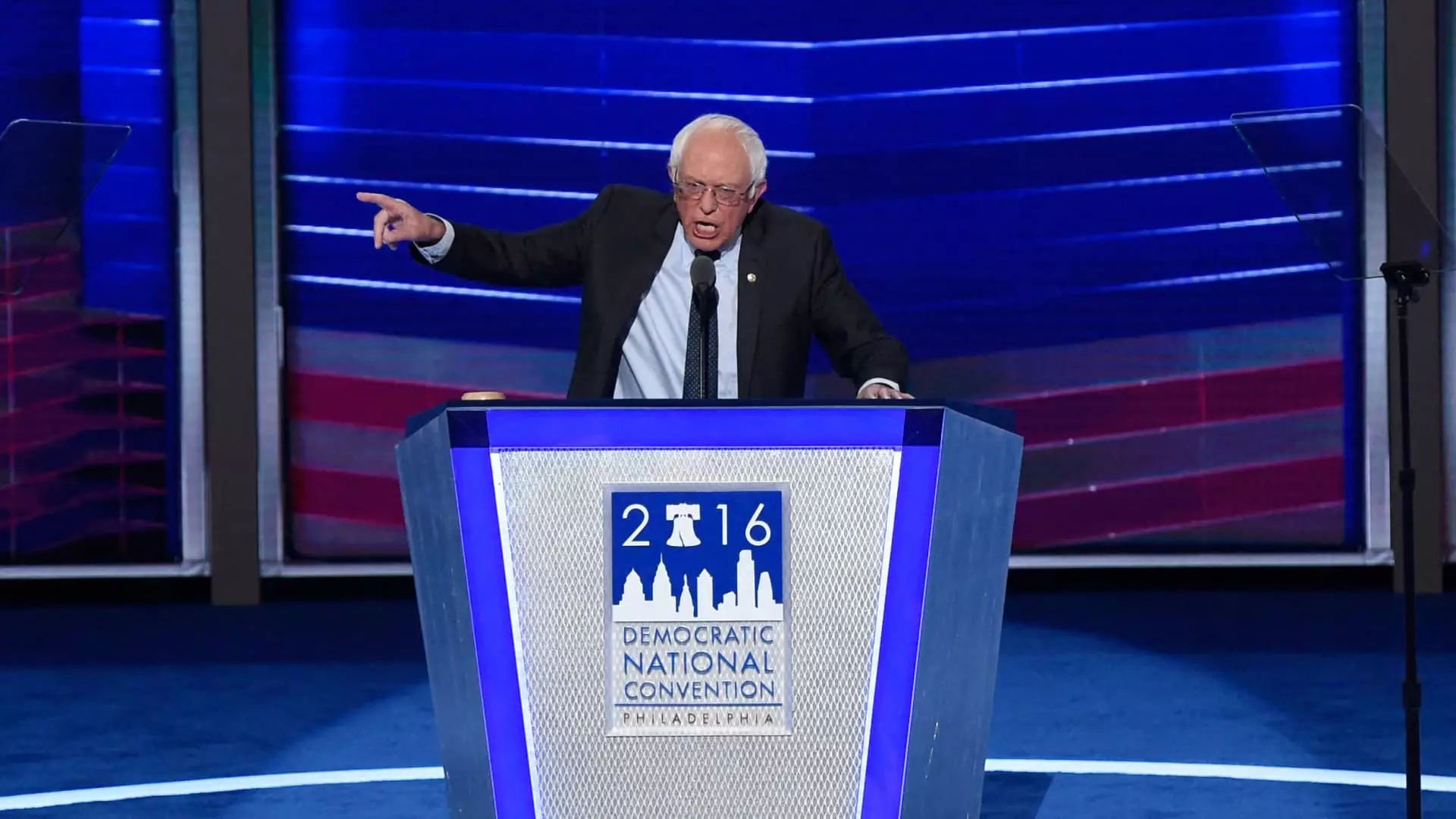Sen. Bernie Sanders, I-Vt., made headlines during a primetime slot at the Democratic National Convention by advocating for his policy priorities, many of which contrast with Vice President Kamala Harris’ campaign platform. Sanders emphasized the need for universal healthcare, specifically endorsing a Medicare for All program, despite knowing that Harris does not share this view. This bold stance on healthcare reveals Sanders’s unwavering dedication to his principles, even if they may not align with the party’s nominee at the moment.
Challenging Big Money in Politics
In addition to healthcare, Sanders also took a stand against the influence of big money in politics, criticizing the actions of billionaire donors in both parties. Despite Harris receiving support from wealthy benefactors for her campaign, Sanders called for an end to the practice of billionaires buying elections. This demonstrates Sanders’s commitment to addressing systemic issues, regardless of potential implications for party unity or support for the nominee.
Contrasting Positions and Class Warfare
Throughout his DNC speech, Sanders highlighted the importance of confronting corporate monopolies and advocating for working people. By emphasizing universal healthcare, money in politics, and class warfare as key elements of his address, Sanders diverged from the traditional convention expectation of praising the party’s nominee. Despite briefly endorsing Harris’s election bid against former President Donald Trump, Sanders maintained a distinct position that set him apart from the vice president.
Sanders’s lukewarm support for Harris, coupled with his underlying allegiance to President Joe Biden, presents a nuanced perspective on party dynamics and ideological differences within the Democratic Party. While some may view Sanders’s actions as unconventional or contradictory, they could ultimately serve as an asset for Harris in appealing to moderate and undecided voters. By acknowledging the existing ideological spectrum within the party and distancing himself from Harris on certain issues, Sanders offers a unique perspective that challenges Republican narratives and broadens the discourse within the party.
Sanders’s portrayal as a Democratic Socialist and one of the most progressive lawmakers in Congress challenges perceptions of the Democratic Party and its leadership. His stance on policy issues and his subtle critique of Harris’s positions provide a counterbalance to Republican attacks, particularly those aimed at painting Harris as a radical progressive. By highlighting the diversity of perspectives within the party and refusing to adhere to traditional conventions of unwavering support for the nominee, Sanders encourages a more robust dialogue on critical issues and fosters a deeper understanding of the party’s ideological landscape among voters.
Overall, Sanders’s primetime appearance at the Democratic National Convention serves as a reminder of the complexity and diversity of viewpoints within the Democratic Party. His advocacy for universal healthcare, criticism of big money in politics, and emphasis on class warfare offer a distinctive perspective that challenges conventional political norms and promotes a more inclusive and dynamic discussion on policy priorities and ideological differences within the party. As the party navigates the upcoming election cycle and seeks to appeal to a broad range of voters, Sanders’s presence and positions may play a crucial role in shaping the dialogue and defining the party’s platform for the future.



Leave a Reply